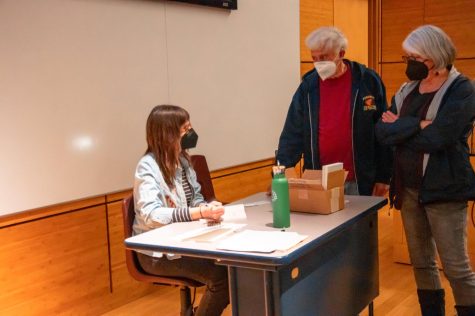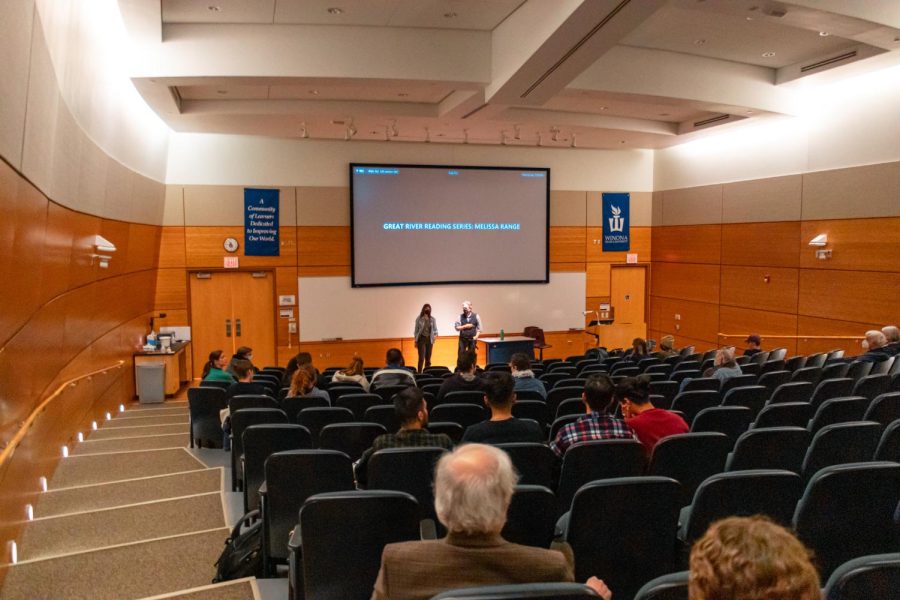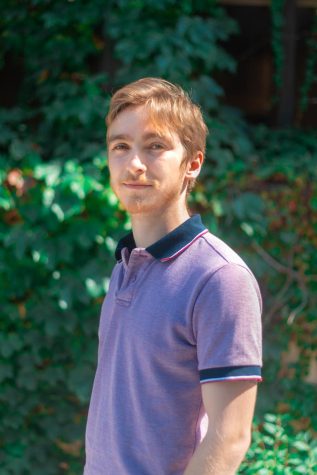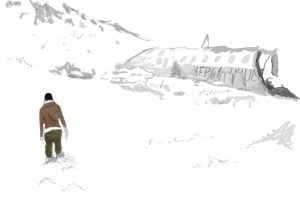Great River Reading Series presents poet Melissa Range
Writer, poet, and professor, Melissa Range, visited Winona State University on April 12 to conclude the John S. Lucas Great River Reading Series. Range read from her poetry book, “Scriptorium”, as well as several other poems that would be included in her upcoming work.
April 20, 2022
Writer, poet and professor, Melissa Range, visited Winona State University for the day on April 12, to close out the John S. Lucas Great River Reading Series events of this semester.
Range teaches at Lawrence University in Appleton Wis. and has written two poetry books, “Horse and Rider” (2010) and “Scriptorium” (2016) and was a winner of the 2015 National Poetry Series.
Prior to her visit, students in Advanced Creative Writing: Poetry, read “Scriptorium”. The professor of the class, James Armstrong, explained why this reading was important.
“Because we have a creative writing minor and major in the English department, it is part of pedagogy to bring in actual live working writers. We always read their books in class which makes their visit much more meaningful because they come and talk with students who know their work intimately,” Armstrong said.
Range’s “Scriptorium” is a collection of poems that cover a variety of topics, from the high register, old English and manuscript creation, to the low register, Appalachian vernacular, to family, class and religion. The throughline that connects it all, according to Range, is language.
In the book, Range reclaims and affirms her upper eastern Tennessee Appalachian vernacular in poems like “Hit” and “Regionalism”. “Scriptorium” is dedicated to Range’s grandmothers, who majorly influenced her dialect. Range pays homage and preserves their memory by exploring common idioms in poems like “A Skiff of Snow” and others.
On the other hand, “Scriptorium” also has poems and sonnets dedicated to scriptorium, manuscript creation and old English. Poems like “Ultramarine” and “Verdigris” are about the pigments that were made and used in manuscripts, and the poem “Scriptorium” goes into depth about manuscript creation and the raw materials that went into creating one.
“When I get interested in something, I really do a deep dive,” Range explained. “I feel like I am just someone who really likes to research… And for me, I’m just kinda like, ‘What am I interested in right now? I’m going to learn everything I can about it,’ because to me that is where I get inspired.”

Range said she first became interested in manuscripts when she found herself working in the theology library at Emory University in Georgia, cataloging library books.
“These books would come in and I would just kind of flip through and you know, it really wasn’t very hard to catalog books, it didn’t really take that long,” Range said. “I would just sit there and kind of pretend like it was a real hard book to catalog, cause I would just read it.”
Range is currently working on her third book which will be about nineteenth century abolitionists and their stories. This project requires a lot of research, Range said, and so she is taking her time to ensure she does it justice. Range revealed the working title for the book is “Printer’s Fist”, which refers to the pointed hand/finger symbol in old newspapers and other print media that would highlight important information.
As part of the Great River Reading Series event, Range visited and spoke in classrooms and performed a reading in the Science Laboratory Center 120, followed by a short Q&A session. People were also able to talk with Range after, buy her book or get a copy signed.
Armstrong commented on why it is important that the Great River Reading Series brings writers to campus every semester.
“I think a lot of students, WSU students particularly, they have no idea that writers are alive, living people, especially poetry,” Armstrong said. “They are taught poetry from the nineteenth century in high school and they think, ‘Well I guess poetry is something dead people did,’ so it is really important for them to see literature is happening right now, right around you.”



































